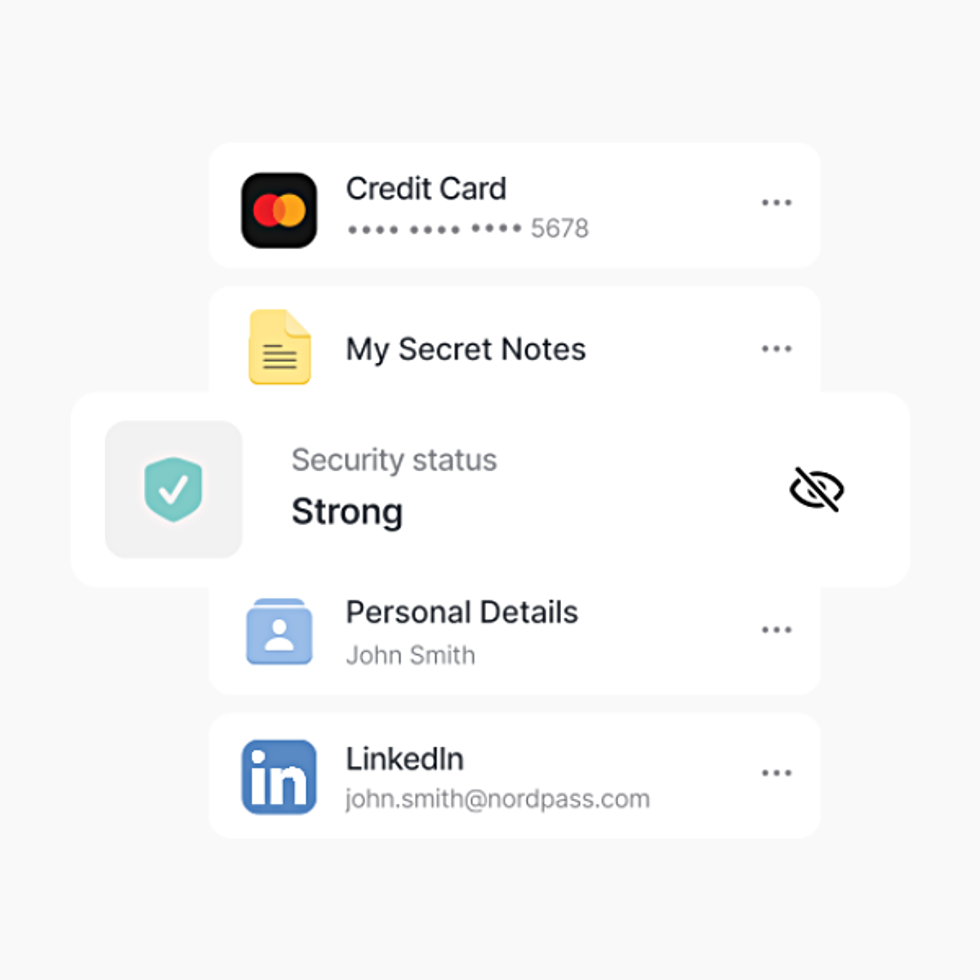Hacking on the rise in the UK: DELETE your passwords, and use these 3 alternatives to secure your account
All products and promotions are independently selected by our experts. To help us provide free impartial advice, we will earn an affiliate commission if you buy something. Click here to learn more
You can use passwordless login methods
- Hacking attempts are on the rise
- Action Fraud reported a 36% increase last year
- Services like Gmail and Plex experienced data breaches
- The UK is the most dangerous country in Europe for malware attacks
- If you're reusing passwords, you should make a change now
- You can use passkeys or biometric technology to protect accounts
Don't Miss
Most Read
If you're in the bad habit of recycling passwords for your online accounts, it's the perfect time to switch to stronger protection on your online accounts. There isn't a better time to change how you secure your online accounts, with cybercrime on the rise. “Remote purchases”, a type of fraud where criminals use stolen logins to buy something, reached nearly 2.6 million cases in 2024 — more than 7,000 incidents per day.
And that's not all. In the year ending March 2025, the National Fraud Intelligence Bureau recorded a 36% increase in computer misuse offences referred by Action Fraud (55,576 offences) vs the previous year. Major companies, including Google, Plex, and WhatsApp, have recently confirmed data breaches, where passwords and other sensitive information have been reported stolen.
For instance, Plex just issued a warning to all users to reset their passwords now in its latest data breach. Google confirmed one of the biggest data breaches for Gmail users, too. The UK has also been named the most dangerous country in Europe for malware attacks, thanks to phishing scams.
It now sits in third place for the highest number of malware attacks in the world, with 103 million incidents recorded within three months alone. In an era where data breaches and phishing scams are becoming increasingly more common, ensuring your accounts are secure is vital for keeping your personal information safe.

There are three rising passwordless login trends: Passkeys, password managers, and biometric technology
|UNSPLASH
However, managing your account passwords has become increasingly challenging.
"Today, the average person manages 70–100 online accounts, each requiring a username and password. Security best practice calls for long, unique passwords, but most people can only remember a few, said Alicia Leone, security sales specialist at TierPoint.
"As a result, they fall back on risky habits like reusing simple passwords or writing them down. This is especially concerning in the workplace, where 10–25 of these accounts are job-related and where writing down credentials is strongly discouraged."
To combat the ongoing security concerns from hackers, these three passwordless login trends have risen to the forefront to help better protect you.
1. Take advantage of passkeys
Passkeys are a modern, passwordless way to sign in to apps and websites. Instead of remembering complex passwords, passkeys use cryptographic keys tied to your device and biometrics (like Face ID, Touch ID, or a PIN) to securely verify your identity. They’re resistant to phishing and data breaches, making logins both safer and easier.
"My recommendation is to use passkeys instead of passwords whenever possible and keep them in a reliable password manager. This is the least you can do for yourself in order to protect yourself from credential-based threats," said Oleg Naumenko, CEO & co-founder at Hideez.
Using passkeys also streamlines your login process, so you don't take up too much time out of your day typing in every password.
Switch to 1Password for FREE

The award-winning 1Password is designed to generate and store unguessable passwords, passkeys, credit card numbers, national insurance numbers, and much more. This encrypted vault is available across all of your favourite devices, including iPhone and Android, Windows and Mac computers, iPad and other tablets. It's built-in WatchTower feature evaluates password strength and warns about data breaches that impact you. 1Password is currently free to test for 14 days with no obligation to subscribe
1Password
2. Use a password manager
A password manager is a secure tool that stores and organises your login credentials in one place. It generates strong, unique passwords for each account and auto-fills them when needed, so you don’t have to remember them all. This helps protect against weak or reused passwords while making sign-ins faster and more convenient.
"NordPass has been publishing a list of the world's most popular passwords for years, warning people not to use them. However, annual studies show that '123456', 'qwerty', and similar passwords continue to be among the most popular globally," said Karolis Arbaciauskas, head of product at NordPass.
LATEST DEVELOPMENTS
Get 52% off NordPass and an extra three months for free

NordPass is a secure password manager that works across your favourite devices, including iPhone and Android, Windows and Mac computers, iPad and other tablets ...it will evaluate your password strength, autofill login details for you, and warn about any data breaches on the Dark Web that impact you. It's a one-stop-shop to improve your online security and fightback against hackers from the team behind the award-winning NordVPN
$2.29
$1.09
3. Identify your account with biometric technology
Biometric technology uses unique physical or behavioural traits—like fingerprints, facial recognition, or voice patterns to verify identity. It offers quick, convenient, and secure authentication since traits like your fingerprints are very difficult to steal or duplicate, reducing reliance on passwords.
More From GB News










